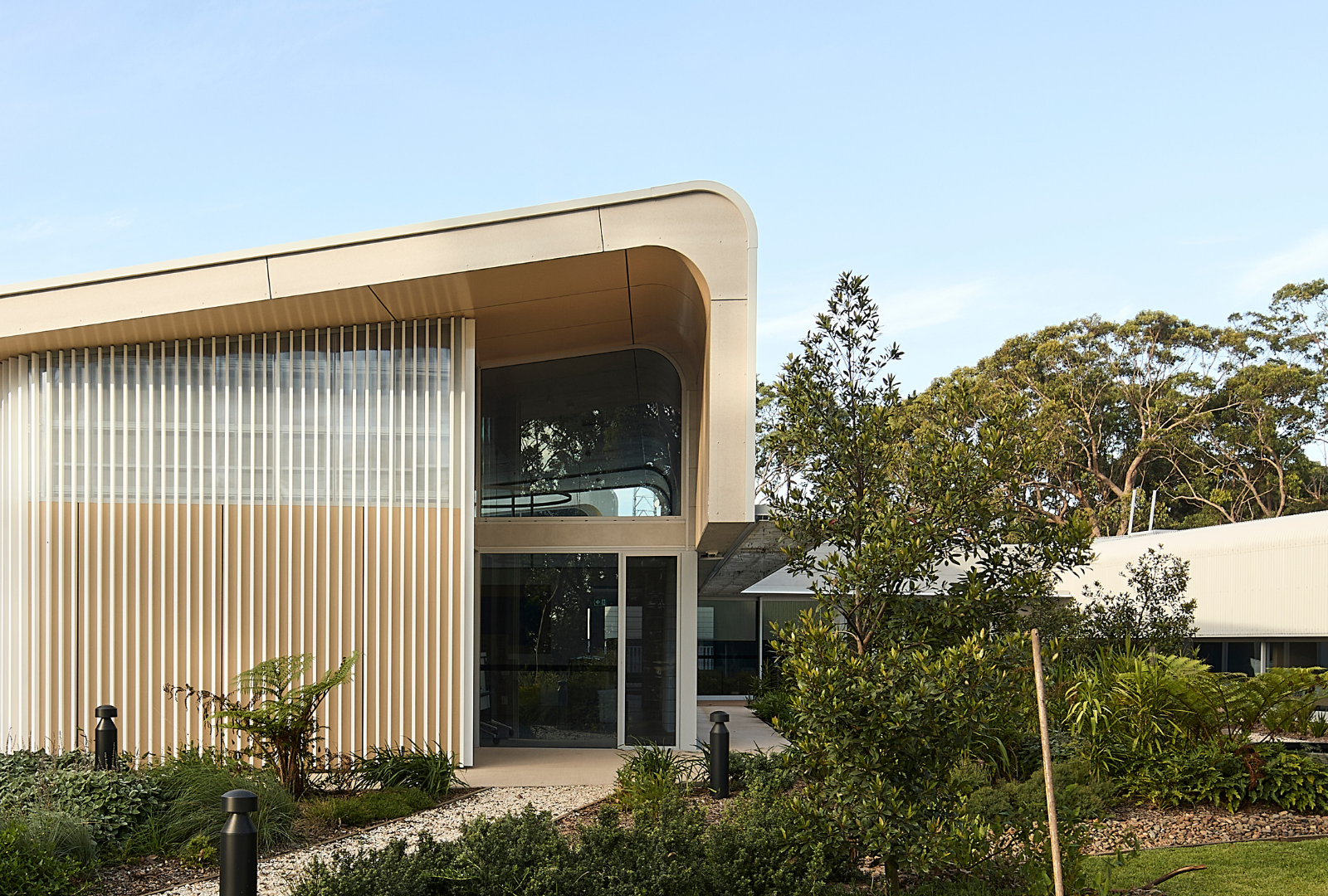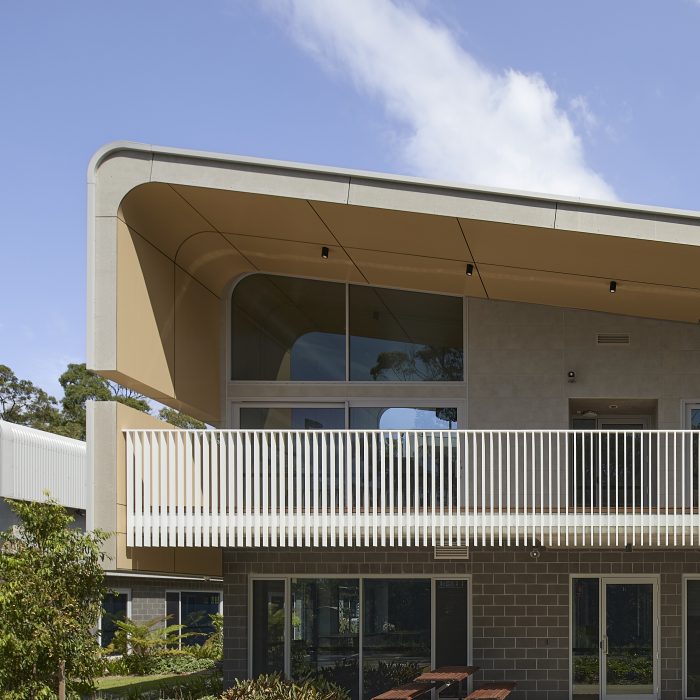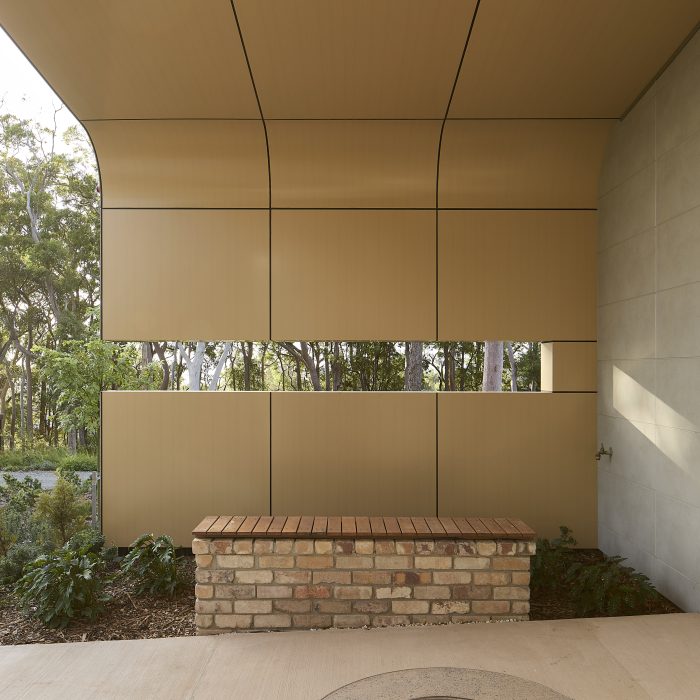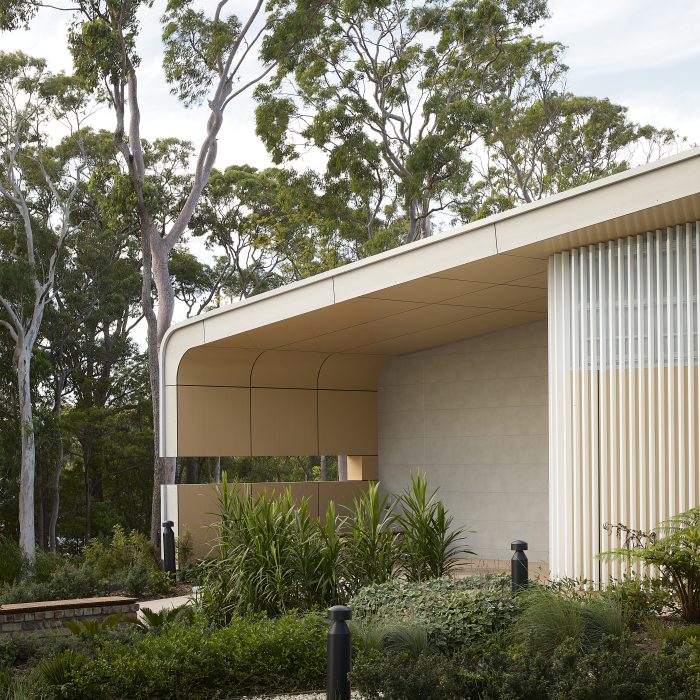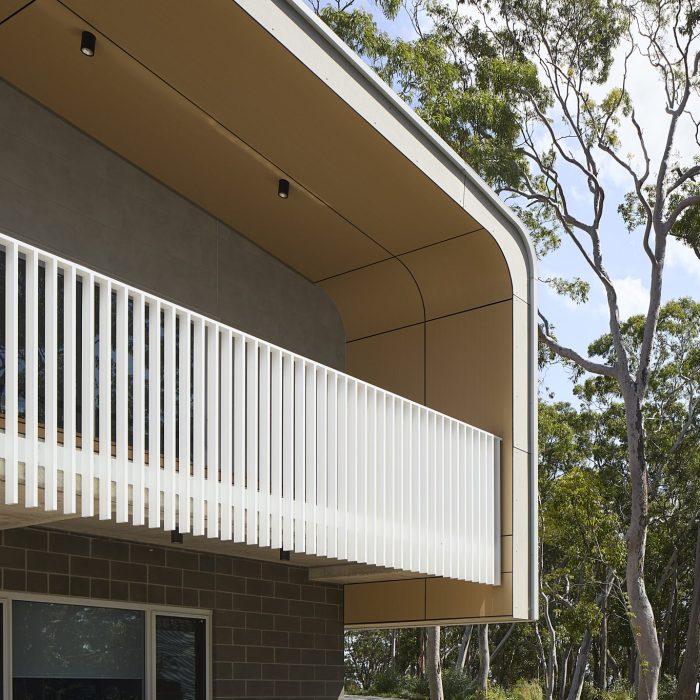Architect: EJE Architecture | Builder: Graph Building | Installer: Darrall Gibson
Product: MondoClad® in Blonde Pine
BACKGROUND
Opened in 2025, the Residential Eating Disorders Treatment Centre in Charlestown is the first purpose-built facility of its kind in New South Wales. Developed by the NSW Government and designed by EJE Architecture in collaboration with Jodie Dixon, the $13 million centre provides a homelike, therapeutic environment for people experiencing serious eating disorders.
Set among the bushland in Newcastle’s southern corridor, the 12-bed facility supports stays of up to three months, offering specialised therapy, daily living skill development, and community reintegration in a calm and restorative setting. Every element of the centre, from the interior zoning to the material palette, was chosen to reduce stress, encourage connection with nature, and promote emotional safety.
A key part of the project’s success was the selection of façade materials that would align with the therapeutic intent while also meeting the strict functional demands of a modern healthcare facility.
CHALLENGE
Creating a facility for eating disorder recovery comes with a unique set of requirements. The design needed to strike a careful balance. It had to feel safe, non-clinical and welcoming, yet still meet the rigorous fire safety, durability and environmental standards expected of public health infrastructure.
Architecturally, the building needed to sit quietly in its bushland setting. EJE’s vision called for a natural, textural exterior, one that would complement the surrounding vegetation and avoid the institutional feel often associated with medical buildings. Materials had to offer a refined appearance, yet be robust enough to withstand Australia’s climate, deliver long-term value, and meet National Construction Code (NCC) requirements.
At the same time, NSW Health required full compliance with non-combustible cladding regulations, as well as assurance of environmental and occupant safety. Aesthetic considerations alone weren’t enough, every material had to perform across multiple critical benchmarks.
SOLUTION
To meet these needs, the project team specified MondoClad® solid aluminium panels in Blonde Pine for the building’s canopy soffits.
Manufactured from marine-grade aluminium and finished with a high-performance PVDF coating, MondoClad® offered the refined, durable, and compliant cladding solution the project required. Its premium finish allowed the architectural team to maintain their vision of a calming, natural aesthetic that sits harmoniously in the landscape, reinforcing the centre’s goal of emotional healing and safety.
Crucially, MondoClad® is fully non-combustible (certified to AS1530.1) and deemed compliant with the NCC. This gave both the client and project team confidence that the material met the strict fire safety criteria expected in public health facilities, without compromising on design.
Beyond compliance, MondoClad® also supported the centre’s environmental and operational goals. With a high recycled content, full recyclability, and certifications including an Environmental Product Declaration (EPD), the product aligned with NSW Health’s sustainability framework. Its low-maintenance, corrosion-resistant properties make it ideal for long-term public infrastructure, reducing upkeep costs while retaining its finish for decades.
Watch the video below to learn more about the project.

